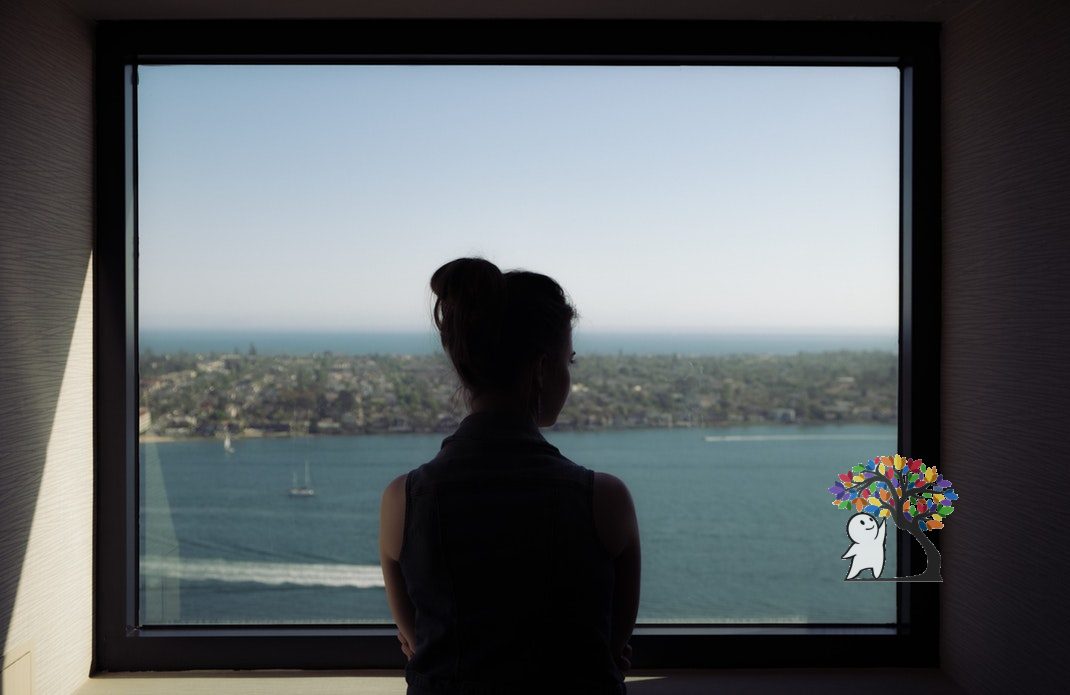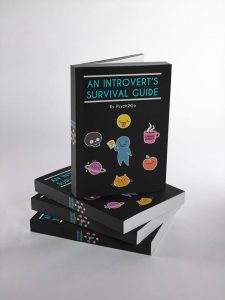5 Reasons Why You Don’t Need to Be Afraid of Therapy

In the world of hookup culture, we’ve made it clear that it’s socially favored to be closed off and emotionally unavailable without a need for love. The same applies to your mental health. If at any point you want to seek help, and someone else scoffs at the idea, then it implies that you’re “weak” or incapable of taking care of yourself. It’s a funny world we live in. People are more concerned about putting on a strong, independent image because they mistake projection for individuality. But this is exactly why millions of people suffer silently behind smiles and social media. Are you tired of wearing the same mask? Psych2Go shares with you 5 reasons why you don’t have to be afraid of therapy:

1. Make sure you want to go through therapy for yourself and not for anyone else.
Otherwise it won’t work. Therapy is a lot like having a relationship. If you’re dating someone because someone else said the two of you would look good together, your partner may not necessarily be right for you. Even if your partner wants what is best for you, if your heart isn’t fully invested in the relationship, you won’t be able to benefit from the relationship.
The same goes for therapy. If your parents or advisor pushed you to go into therapy, but you’re not fully present during your sessions, then no matter how insightful your therapist’s advice is or how many techniques they recommend you to use, you won’t be able to heal. In order to get better, you have to be in the right mindset to do the work.
I was guilty of this myself. Sometimes, I’d be quick to say, “This isn’t working for me,” after a few tries. But, it’s not about instant gratification. Depending on how bad your emotional wounds are, they will take time to heal. Even if you have a great psychologist who is willing to help you, their help won’t be effective unless you also put in the work.

2. Find the right therapist who works for you.
Erin Bogo, our YouTube manager, states, “It might take a few tries to find the right therapist to work with.” According to Bogo, it’s a good sign when therapists allow free consultation sessions before charging you because they’re willing to see if the both of you click first. It can be daunting jumping right in before understanding what you’re committing to. You want to make sure your therapist is someone you can trust because vulnerability is required in order to get better. This is someone you’re going to get close to.
It may take a few tries before finding the right therapist for you. Sometimes, the specific field or branch they studied won’t be effective for what you’re going through, and that’s okay. You won’t be hurting your therapist’s feelings if you decline their help. Ultimately, your therapist just wants what is best for you, so if you can find that elsewhere, please don’t hesitate to let them know before you look for someone new.

3. Get a recommendation from someone who you trust if you don’t know where to start.
It’s normal to feel lost and unsure about where to start. That’s where your connections can come in handy. If you’re a student, you can get a recommendation from your guidance counselor, an academic advisor, or a teacher. You can also ask your family doctor, a close friend, or coworker for suggestions. If you and your parents have different views on therapy that may be conflicting and you feel uncomfortable about disclosing information to them, you can talk to your insurance provider about that. You can also let your therapist know about your confidentiality preferences. Ultimately, you have people around you who can be of assistance and protect your privacy.

4. Therapy can be affordable.
The economy isn’t doing so well today, which brings a lot of financial burden. As a result, the last thing people think about is spending a check on therapy. This is why therapy is often overlooked and people’s mental health is placed on the back burner. “I’ll look into it later,” you may say once you can afford it. We recommend that you start off by talking to your insurance provider to see which local psychologists are available who accept them. If you’re a college student, you can also take advantage of the health services provided on campus where you can talk to a counselor.
If you lead a busy life that makes it hard for you to make time out of your schedule to see a therapist, there are also many counseling websites that can be of help. Blah Therapy and 7 Cups are just a couple of examples in which you can talk to strangers. Sometimes, it can be incredibly effective to vent to someone you’ve just met. There is also virtual therapy that allows you to connect with a licensed psychologist at a reduced price. Options are out there; it just requires some research, but it’s worth it if you find your mental health suffering.

5. Don’t rule therapy out permanently because your life changes overtime.
If you’ve tried therapy before because your parents or family doctor recommended it and it didn’t work for you, that’s okay. Perhaps you found your leisurely activities more therapeutic than talking to someone. I’ve been there myself. But, life changes and there will be different stressful situations that will affect you. You may not need therapy right this second, but it’s something that can be considered down the road if your mental health is suffering. It doesn’t help that the stigma is still high today in regards to therapy, but your life is more important than what popular opinion thinks. If at any time you feel as though you should seek help, listen to what your body is telling you.
Are you still hesitant to give therapy a try? We understand how hard taking the first step is, but we want to be supportive. Please share your thoughts with us by leaving a comment down below.
Want to say hello or send a personal message? You can reach the author at catherine@psych2go.net. ♥
If you enjoyed this article, then you may also like 5 Ways Mindfulness Can Improve Your Life or 10 Ways to Build Your Emotional Resilience.
Looking for more reading supplies? Please check out our e-book: An Introvert’s Survival Guide! Get your copy today!

Love our content and want to continue supporting us? Visit our Patreon!
References:
Need to Talk? (2018). Retrieved March 28, 2018, from www.7cups.com
Ramos, B. (2017, July 20). 7 Things You Never Knew About Going to Therapy. She Knows. Retrieved March 28, 2018.
Vent/Listen to Everyday People. (2010). Retrieved March 28, 2018, from www.blahtherapy.com



Responses